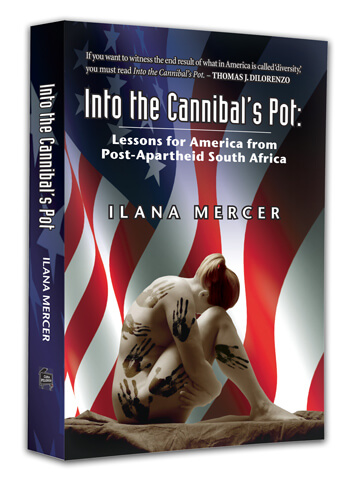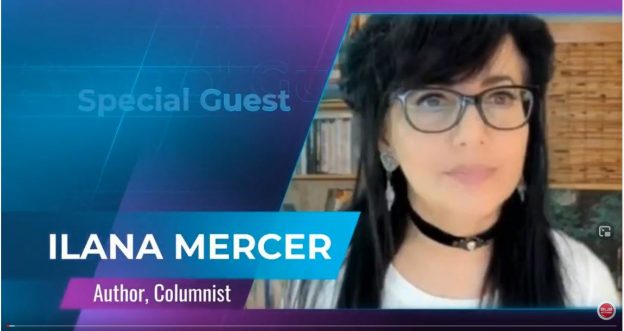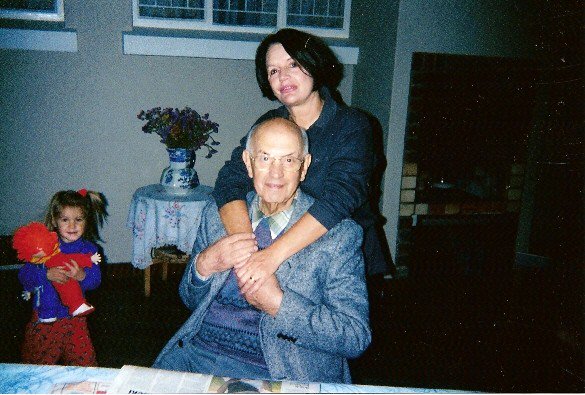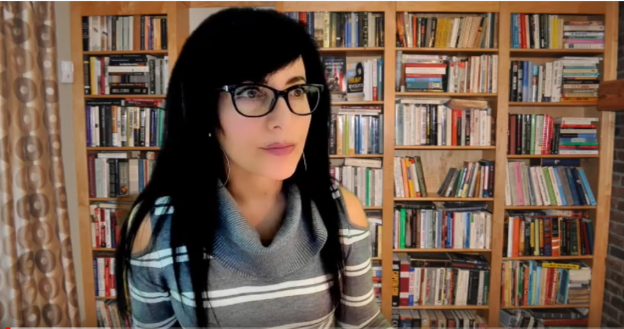Boyd D. Cathey at LewRockwell.com about my column at CNSNews.com, “Americans Should Recall How Foreign-Policy Alinskyites Destroyed South Africa“:
“… One writer who is also a dear friend is Ilana Mercer. Ilana writes a regular column that is printed in various venues. A former citizen of South Africa, she has seen quite personally how the ravages of Marxist and Communist revolution can destroy a civilized country and its social structures. And she has recounted that experience—and warning to the West—in detail in her necessary volume, Into The Cannibal’s Pot: Lessons For America From Post-Apartheid South Africa. It’s a book that more Americans should know and pay heed to, for there are certain parallels with the insane post- or neo-Marxist ‘woke’ anti-racist and anti-white revolution now occurring almost unopposed here in the United States. Indeed, what is now happening here makes the revolution in and transformation of South Africa seem mild in comparison.
In a recent column, Mercer offers a broad survey which examines the tragically obtuse and wrongheaded policies of the United States around the globe: for decades, whether under Democratic or Republican presidents—it seems to make little difference—American policy has been to impose on other countries by whatever method was convenient or available an egalitarian leftist-liberal ‘democratism,’ a uniform global model as part of a universal zeal to remake the world. Older traditions, inherited religious belief, valued customs, and forms of government and statecraft which do not hew the ‘democratic’ line and do not celebrate “equality” (as our government apparatchiks define it successively to suit their globalism) become pariah states. And soon, with the influence of US government-supported and financed NGOs (non-government organizations), ‘opposition’ groups pop up in those non-juring countries. With American funding and the enthusiastic participation of almost the entirety of the US media, including most so-called ‘conservative media’ (e.g. Fox News, National Review, The Wall Street Journal, etc.), new paper ‘heroes of democracy’ are created and showcased. …”
MORE: “American Foreign Policy Advances the Globalist Revolution.“
UPDATE I (4/6/021): Nothing escapes my loyal, and oh-so smart readers. Musil Protege writes quite frankly:
“That’s pretty good. Dr Cathey promoting you on the website that should’ve been carrying you all along.”

That’s pretty good. Dr Cathey promoting you on the website that should’ve been carrying you all along.
— Musil Protege (@MusilKen) April 6, 2021
UPDATE II (11/30/021):
I said once or twice or thrice to paleos who have consistently submerged my work, pretended it does not exist; and wished me weakly away: Good or bad, your duty is to reflect reality among our ranks . To the extent you cover your faces and wish scary lady ilana mercer away—that she and her wonder-words would vanish—to the extent you’re reality testing has failed. Miserably. A recent eruption from an enforcer of the pack-animal camp reminded me of Musil Protege’s feisty words.
Best Libertarians:
1.Ron Paul
2.Hans Hermann Hoppe
3.Murray Rothbard
4.@IlanaMercer
5.@ThoBishop— Sammy ???? (@sammy_based) November 25, 2021





